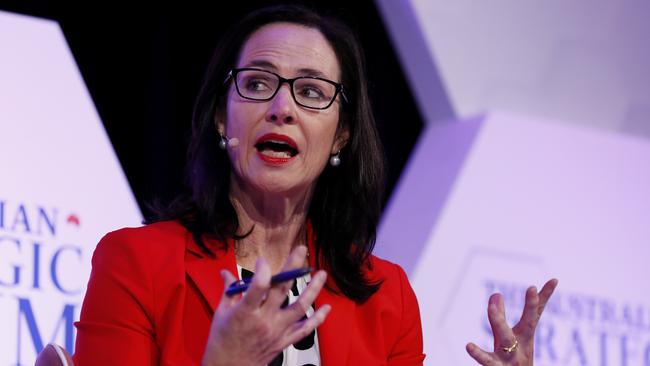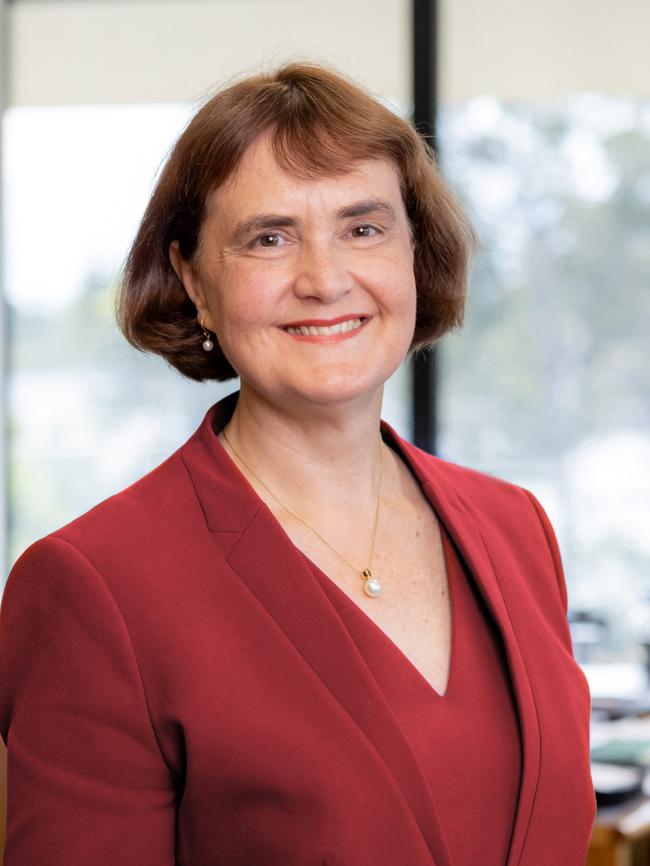Rich universities warn of cuts to domestic degrees as international student caps slash revenue
The Coalition is poised to give a Senate green light to the federal government’s cap on international student numbers, as Australia’s richest universities threaten to cut domestic student enrolments.

You can now listen to The Australian's articles. Give us your feedback.
The Coalition is poised to give a Senate green light to the federal government’s cap on international student numbers, as Australia’s richest universities threaten to cut domestic student enrolments to offset an expected loss of revenue.
Federal opposition education spokeswoman Sarah Henderson on Wednesday said the Coalition supported capping international student numbers but there was “a range of concerns about the legislation before parliament which are currently being interrogated’.
Federal Education Minister Jason Clare needs Senate support for his plan to limit to 270,000 the number of new international students enrolling in universities and private training colleges next year.
The Group of Eight research universities said the loss of revenue from foreign students’ tuition fees would place domestic teaching and research at risk.
Go8 executive director Vicki Thomson said her universities would lose 22,000 international students – or 30 per cent of new recruits – at a cost of up to $1bn.
“We have to have some serious discussions around the numbers of domestic students we can have, because we teach those high cost courses, medicine and dentistry,’’ Ms Thomson told ABC radio.
“In relation to jobs in our universities, to teaching, to research, there are some serious discussions and decisions that our institutions would have to make – none of them which will be palatable, and none of them would be pleasant.’’
Senator Henderson said the Go8 threat was disappointing. “If our top universities are going to reduce domestic students to protect their rivers of gold – being billions of dollars in foreign student fees – the Coalition will consider further measures to put Australians first,’’ she said.
“All university vice-chancellors need to understand their fundamental obligation is to educate Australians.’’
Senator Henderson would not elaborate on the “further measures’’, or outline potential amendments to the government’s bill before the Senate.
The Greens will vote against the legislation, with higher education spokeswoman Mehreen Faruqi declaring the government “needs to stop micromanaging universities and start funding them properly”.
Ms Thomson said the University of Sydney, Melbourne University, the University of NSW and Monash University “would probably be the most impacted at this point in time’’.
The other Go8 members are the University of Queensland, the Australian National University, the University of Western Australia and Adelaide University.
The Griffith University vice-chancellor Carolyn Evans – who is a board member of Universities Australia – said universities relied on revenue from fee-paying foreign students. “At the moment, there is simply no money for research, no money for infrastructure, no money to support students from regional and poorer backgrounds to get a sufficient quality of education,’’ Professor Evans told ABC radio.

Despite crying poor over infrastructure, she said her university – which is based south of Brisbane – was planning to establish a new campus in Brisbane’s CBD. She refused to say whether the university would buy or lease the historic Treasury building, just vacated by the city’s casino. “We’ve been very clear we’re interested in a CBD campus, and we are in negotiations about trying to have an outcome of that in the next couple of weeks,’’ she said.
A national planning level will replace the Ministerial Direction 107 by former home affairs minister Clare O’Neil in February to slow down student visa applications from countries considered high-risk, including India, Pakistan and Nepal.
The visa go-slow resulted in more Chinese students enrolling in Go8 universities in Sydney and Melbourne, and stripping students from regional universities.
The federal government plans to cut new enrolments at Go8 universities and increase enrolments in regional universities.
The Regional Universities Network called for a “speedier implementation’’ of the new policy, including an immediate revocation of the directive. “Since 2019, regional universities have seen a 61 per cent drop in international student fee revenue and an over 50 per cent drop in international student numbers,’’ RUN chief executive Alec Webb said on Wednesday.

The Innovative Research Universities said its members “cannot wait’’ for the government to repeal Ministerial Direction 107, which had a disproportionate impact on its members – James Cook University, La Trobe University, Griffith University, Western Sydney University, the University of Canberra, Murdoch University and Flinders University.
It is seeking amendments to the bill to remove the power for Mr Clare to control or cancel individual courses within universities – an accountability clause the Coalition is unlikely to vote down. It also wants the government to remove the automatic suspension of a university’s registration for exceeding its allocation of international students.
The Victorian Labor government rubbished the international students cap, calling the idea the most destructive decision since former Liberal prime minister Scott Morrison told foreign students to go back to their home countries during the Covid-19 pandemic.
State Treasurer Tim Pallas said the cap would have an adverse effect on the Victorian economy as the state had 30 per cent of the national market share of international student enrolments. In 2023, international students generated $14.8bn in export revenue for the state and supported about 63,000 jobs.
The National Union of Students warned of job cuts at universities and called on the federal government to abandon the caps.
Additional reporting: Tricia Rivera







To join the conversation, please log in. Don't have an account? Register
Join the conversation, you are commenting as Logout